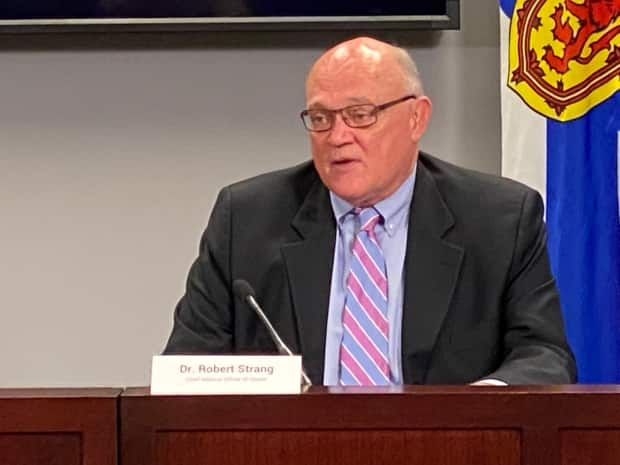Cuba-Atlantic bubble 'an interesting idea,' Russell says
Sorry, sun-seekers, that dream trip to Cuba might have to stay a dream for now, although Dr. Jennifer Russell, New Brunswick's chief medical officer of health, wasn't entirely opposed Thursday to the idea of a travel bubble.
"It's an interesting idea," she said when asked about an Atlantic-Cuba travel bubble at a news conference in Fredericton.
Talk of a new bubble arose this week after a Halifax travel agency said it was offering two week-long trips to Cuba reserved exclusively for residents of Atlantic Canada looking for a warm winter vacation safe from COVID-19.
Absolute Travel Specialists in Halifax has said it would charter one Air Canada flight to Cuba in February and another in March, and travellers would have to quarantine on their return to Canada. Half the seats on the first flight have been sold, the agency said.
Russell said a travel bubble is only in the "conversation stage" and would have to be agreed on by all four Atlantic provinces.
"The risks as of right now would have to be decided upon as a collective, the four provinces together would have to agree on that … I haven't really had any conversations myself personally," she said.

But her counterpart in Nova Scotia, Dr. Robert Strang, is not keen.
On Wednesday, Strang poured cold water on the possibility of a bubble and encouraged Nova Scotians to stay home.
"The Public Health Agency of Canada continues to advise against non-essential international travel," Strang told reporters, adding the "safest" option for now is for Nova Scotians to continue to "support our local hotels, restaurants and other businesses."
At the briefing Thursday, Russell was also asked about the possibility of setting up temperature scanners at airports in Fredericton, Moncton and Saint John, as larger airports in Toronto and Calgary are doing.
She said she hasn't heard any discussion about bringing the scanners here and suggested it isn't high on her radar at this time.
"In terms of the technology and what that information can tell us about travellers … we know that the symptoms of fever in patients with COVID can be fleeting," she said. "It can last for a short while and go away and then come back."

